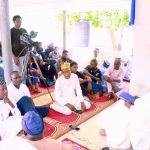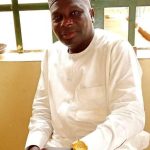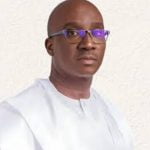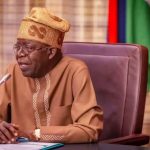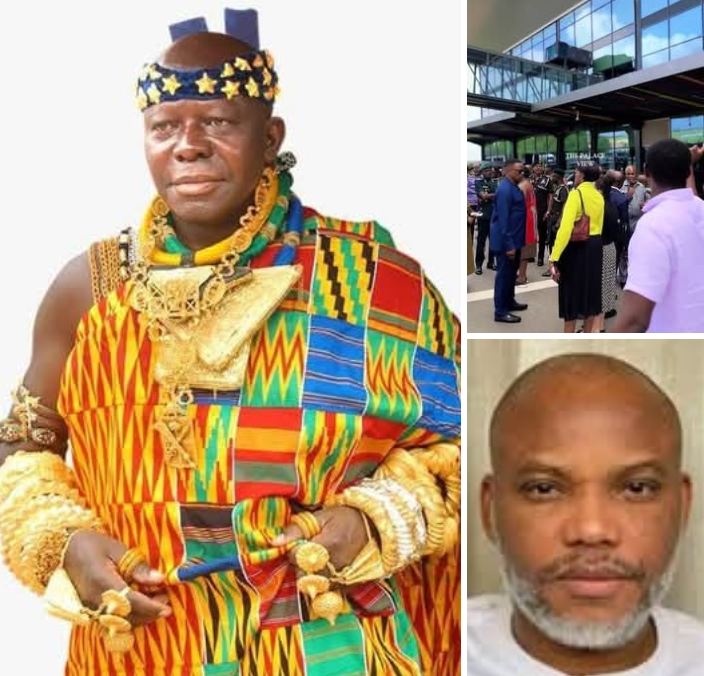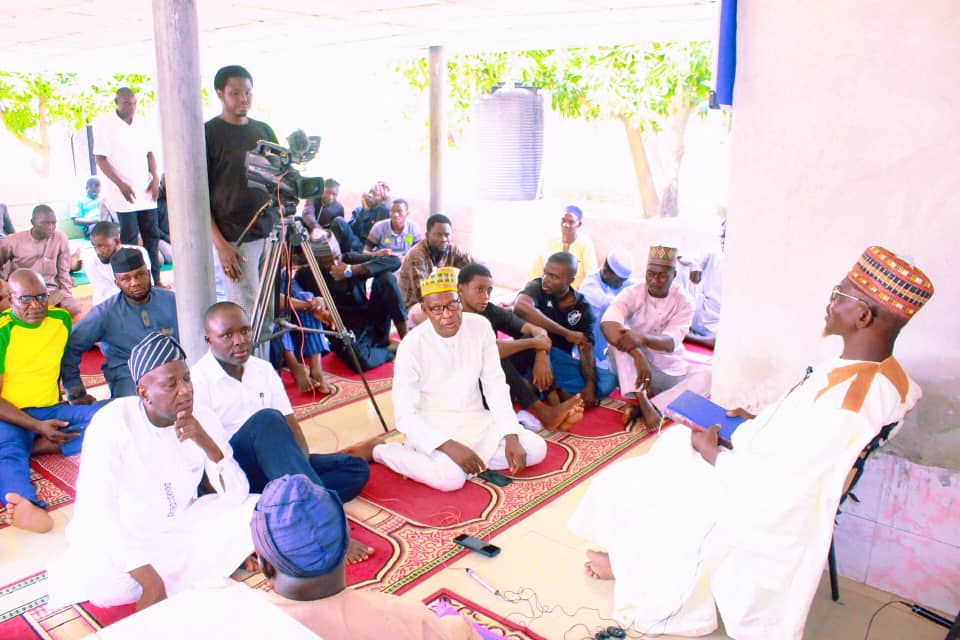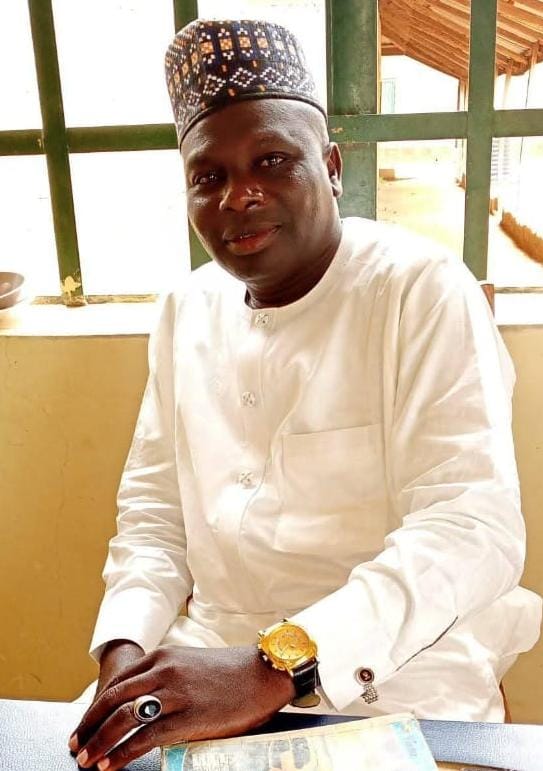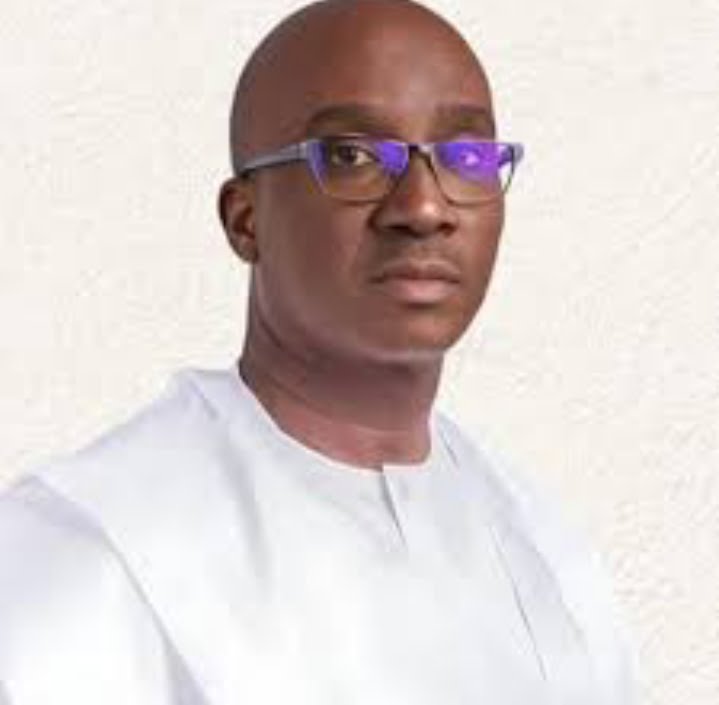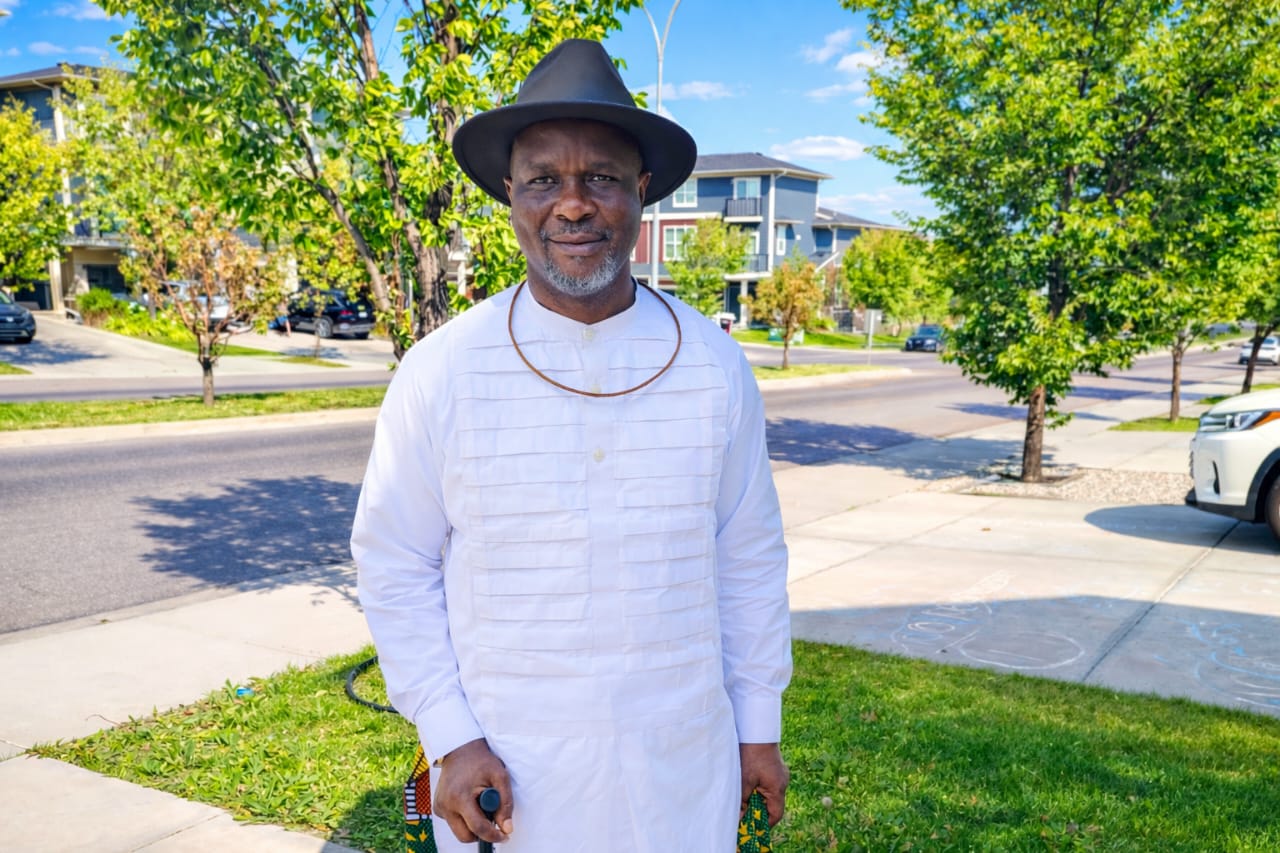Ghanaian King Osei Tutu II arrives Nigeria to participate in Free Nnamdi Kanu protest
Ahead of the October 20, 2025 protest demanding the release of the detained Indigenous People’s of Biafra (IPOB) leader Mazi Nnamdi Kanu, more foreigners and international bodies have shown increased support for the struggle.
According to recent reports, Nnamdi Kanu and IPOB have sought and gained some level of international attention, including petitions to foreign embassies and organizations such as the US, UK, Canada, Amnesty International, and others, calling for interventions to ensure his release and uphold legal standards in Nigeria regarding his detention.
There have also been historical foreign involvements, including an American lobbying firm hired by Kanu to promote IPOB’s cause, which indicates that the struggle has international dimensions with foreign actors engaged in supporting Kanu’s efforts to gain freedom and recognition for Biafra.
The protest planned for October 20, 2025, is set to be a nationwide demonstration, with involvement from Nigerian civil groups and broader international support networks calling for Kanu’s unconditional release.
Despite court rulings ordering his release, Kanu remains detained, which has further galvanized support locally and abroad.
The protests aim to press the Nigerian government for his immediate release and highlight the issues around his detention, which continue to attract both local and international attention and solidarity campaigns
One of such leaders is His Majesty, Otumfuo Osei Tutu II, the King of the Ashanti Kingdom, has arrived in Nigeria ahead of the “Free Nnamdi Kanu” protest set for Monday, October 20th. Speaking at the airport, he expressed his concern about what he perceives as injustice in the handling of Nnamdi Kanu’s case by the Nigerian courts.
The King stated that remaining silent was no longer an option, emphasizing that “justice delayed is justice denied.” He framed the issue as not only an Igbo or Nigerian matter but a broader African concern.
He also highlighted the strong historical ties between the Igbo people and Ghana, noting the significant contributions Igbos have made to Ghana’s development through business, education, and trade.
He underscored the importance of solidarity: when a brother suffers, one should stand with him rather than look away.
